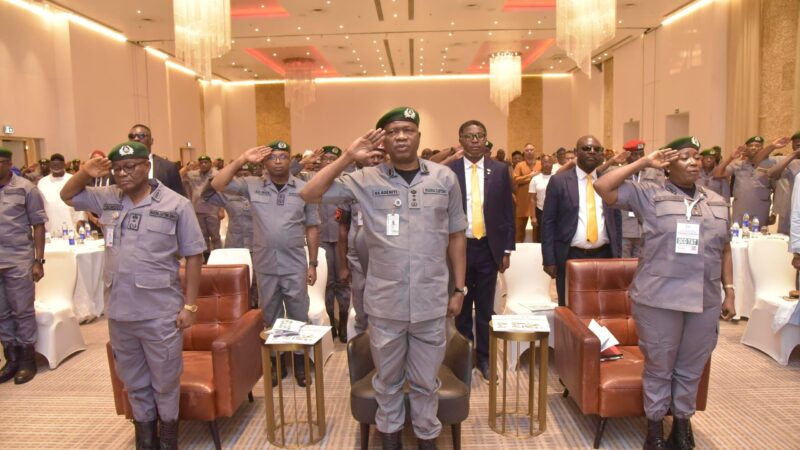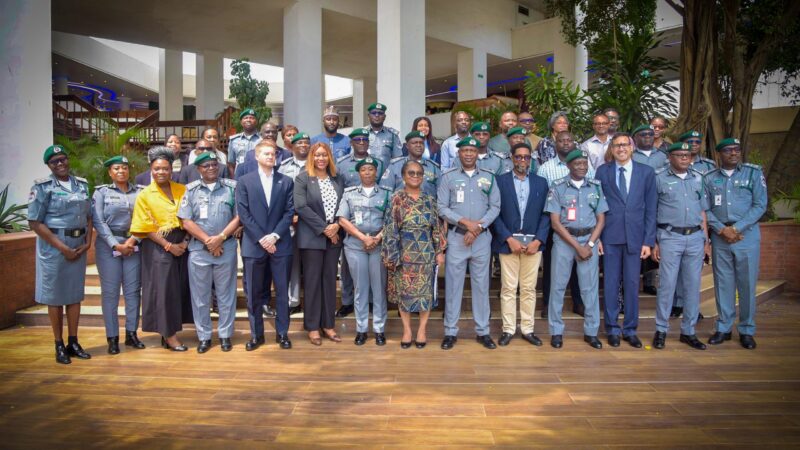ASRTI advocates for human capital development, policy reforms in Nigeria’s aviation sector

The Aviation Safety Round Table Initiative (ASRT) also known as Aviation Round Table (ART) has emphasised the importance of investing in human resources to ensure optimal performance and adaptability to evolving challenges in Nigeria’s aviation sector.
Delivering his welcome address at ASRTI’s first quarter Breakfast Session held today – May 2nd, 2024, President of the body, Air Commodore Demola Onitiju (rtd) said amidst the backdrop of the COVID-19 pandemic, which prompted significant shifts in global aviation practices, there is need for comprehensive training and development programs to equip professionals with both technical expertise and essential soft skills.
According to him, the theme of the event – Prioritising Human Capital Development and Advocating for Policy Reforms – was carefully considered to ensure that the industry adapts to global standards with a view to enhancing safety, security, and customer satisfaction.
The ASRTI President remarked: “The aim of this session therefore is to re-awaken the stakeholders in the Nigerian aviation industry of the need to prioritise human capital development to ensure career progression stability, succession and foster harmonious workforce relations.
“As we all know, a harmonious blend of technical and soft skills ensures safe and efficient aviation operations.
“The ART believes that human resources development in the Nigerian aviation sector should integrate modern technology, cyber security, Artificial Intelligence, innovation and data analysis together with state of the art aeronautical and navigational aids.
“It is our view that the optimisation of processes, efficient use of resources would promote seamless coordination between the operators and the ground handlers, caterers and cleaners. But all these come at a price – training!”
Addressing contemporary issues within the Nigerian aviation landscape, the ASRTI President reiterated its call for the autonomy of regulatory bodies, such as the Nigerian Civil Aviation Authority (NCAA), to insulate them from political pressures and uphold global standards.
He urged government intervention to review and suspend taxes, tariffs, and charges affecting airlines, aiming to alleviate financial burdens and stimulate industry growth.
Onitiju also underscored the importance of effective governance through the establishment of governing boards for aviation agencies, promoting transparency, accountability, and responsible decision-making.
Additionally, he called for a comprehensive review of bilateral and plurilateral air services agreements to protect local airlines and ensure a fair competitive environment.
Onitiju noted: “For us in the ART, the interest of the Nigerian State and her people must be paramount at all times. This necessitated our renewed call for a comprehensive review of Bilateral and Plurilateral Air Services Agreements to suit our present circumstances.
“ART has, on several occasions, recommended the development of a local hub to effectively protect local airlines against the predatory foreign airlines granted multiple entry into local destinations.
“The ART has variously embarked on policy advocacy on the need to balance the interests of local tourism players and the need to encourage the growth of budget airlines.
“Attractive as Open skies might appear to be, modifications as would stimulate fair competition and reciprocal rights must be observed. In our view, Open skies are not devoid of regulation. There must be a balance between its tenets and the national interest.
“The recent commendable audacity of the Air Peace Airline to embark on the Lagos – London Gatwick route and the dust it generated is a case in point. The Nigerian State must rise up in defence of its own without apology!”
In addressing safety concerns, particularly regarding runway excursions, the ASRTI President emphasised the need for collaborative efforts between regulatory bodies and industry stakeholders to implement robust policies and practices.
He warned against knee-jerk reactions to incidents, advocating for coordinated strategies based on thorough risk assessment and adherence to due process.







